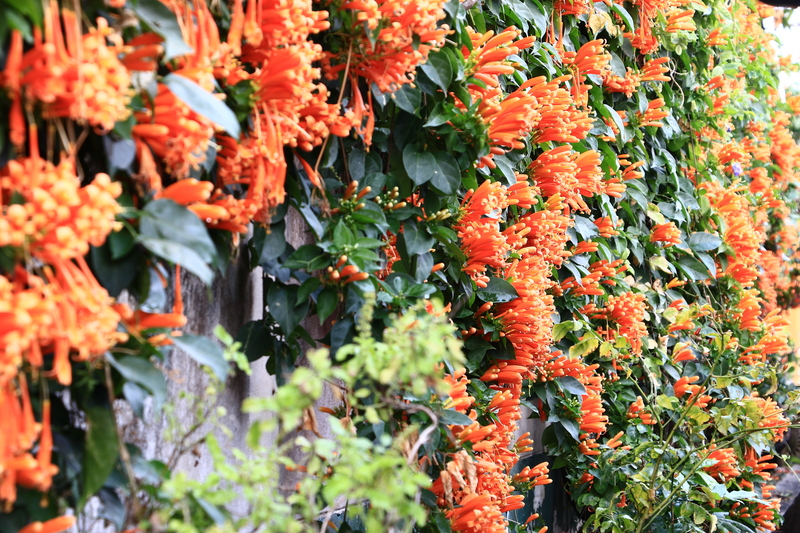Eco-Friendly Practices: Waste into Nutrient-Rich Soil
Posted on 17/06/2025
Eco-Friendly Practices: Transforming Waste into Nutrient-Rich Soil
Eco-friendly practices are becoming increasingly crucial in our daily lives, communities, and industries. One of the most impactful and practical approaches is the conversion of waste into nutrient-rich soil. This sustainable method not only reduces the volume of landfill waste but also enriches our environment, supports agriculture, and helps combat climate change. In this comprehensive article, we will delve into the many facets of eco-conscious waste management, explore the science and techniques behind turning trash into treasure, and offer actionable guidance for individuals, households, and organizations.

Why Turn Waste into Nutrient-Rich Soil?
*Transforming waste into nutrient-rich soil*, often through practices such as composting and vermiculture, is a sustainable solution at the intersection of waste management and agriculture. With rising awareness of climate change, food security, and environmental stewardship, embracing such methods is more urgent than ever. The process promotes a circular economy--where waste is continually recycled into valuable resources--reducing dependence on chemical fertilizers and minimizing landfill overflows.
- Reduces landfill waste: Composting and other eco-minded methods divert organic matter away from landfills, cutting methane emissions.
- Enriches soil fertility: Nutrient-rich compost improves soil structure, water retention, and promotes robust plant growth.
- Protects the environment: These eco-friendly practices decrease the environmental impact of modern food and yard waste.
- Promotes food security: Healthy soil yields more nutritious crops, helping to build resilient food systems.
Understanding the Science Behind Waste-to-Soil Conversion
At the heart of the eco-friendly process of converting waste into fertile soil is decomposition. Organic matter, such as kitchen scraps, yard clippings, and paper, undergoes a natural breakdown by microorganisms, fungi, and in some cases, invertebrates like worms. This process turns waste into humus--a stable, dark, nutrient-packed substance that gives soil its vigor.
- Aerobic decomposition: Requires oxygen, produces minimal odors, and is the most common form in backyard compost piles.
- Anaerobic decomposition: Occurs in oxygen-poor environments, often resulting in methane, but can be harnessed for biogas energy.
- Vermicomposting: Utilizes worms to accelerate decomposition, transforming waste into rich worm castings.
Composting: The Cornerstone of Eco-Friendly Practices
Composting is the primary technique for turning waste into nutrient-rich soil. It's a natural biological process where microorganisms break down organic waste--like fruit peels, vegetable scraps, coffee grounds, and garden trimmings--under controlled conditions.
Types of Composting Methods
- Backyard Composting: Common in households, this method uses a compost pile or bin to process everyday food and yard scraps.
- Vermicomposting: As mentioned, uses specific species of worms (such as Eisenia fetida) to decompose waste quickly and generate concentrated soil amendment--worm castings.
- Bokashi Composting: An anaerobic fermentation process using special microbial inoculants, suitable for meat and dairy waste, which traditional composting can't handle.
- Community Composting: Neighborhood-level programs that collect and process organic waste from multiple households or businesses.
- Commercial Composting: Large-scale operations that process vast amounts of food, yard, and even some industrial waste, often used by municipalities and businesses.
What Materials Can Be Composted?
Not all waste is equal when it comes to eco-conscious composting. The key lies in the correct mix of brown (carbon-rich) and green (nitrogen-rich) materials, which together provide the perfect conditions for decomposition.
- Brown Material: Dry leaves, twigs, cardboard, shredded newspaper, straw, sawdust.
- Green Material: Fruit and vegetable scraps, coffee grounds, green grass clippings, eggshells, plant trimmings.
Avoid composting: Meat, dairy, pet waste, diseased plants, oily foods, and plastics--these can attract pests, spread pathogens, or fail to decompose efficiently.
Step-by-Step Guide: Turning Kitchen and Yard Waste into Nutrient-Rich Soil
Starting your compost pile or vermicomposting system is surprisingly straightforward. With a bit of planning and patience, anyone can embrace these eco-friendly waste-to-soil practices at home.
- Choose a location: Select a dry, shaded site near a water source for your compost bin or pile.
- Layer materials: Alternate green and brown materials. A general rule is one part green to two parts brown.
- Maintain moisture: Keep your pile as damp as a wrung-out sponge. Too dry, and decomposition slows; too wet, and you'll get odors.
- Aerate regularly: Turn the pile every couple of weeks to supply oxygen and speed decomposition.
- Wait and monitor: In a few months, the organic matter will transform into dark, crumbly soil teeming with beneficial microbes.
For vermicomposting, use a special bin and add red worms along with your food scraps. Keep conditions moist and avoid large citrus or salty foods, which worms dislike.
Benefits of Converting Waste to Fertile Soil
The advantages of eco-friendly waste utilization practices go far beyond simple waste reduction. Embracing the transformation of waste into nutrient-rich soil has numerous environmental, economic, and societal rewards:
- Reduces landfill methane: Diverting organic materials from landfills slashes greenhouse gas emissions.
- Enhances soil health: Compost replenishes nutrient-depleted soils and fosters beneficial microbial communities.
- Conserves water: Improved soil structure means better water retention, reducing irrigation needs.
- Saves money: Reduced need for chemical fertilizers and lower waste management costs.
- Supports biodiversity: Rich, organic soils nurture more robust ecosystems.
- Empowers communities: Local composting initiatives can bring neighbors together and boost food security.
Overcoming Challenges in Home & Community Composting
While eco-friendly waste-to-soil strategies offer countless benefits, challenges can occur, especially for beginners or at community scales.
- Odor and pests: Properly balanced green/brown ratios, regular aeration, and correct bin design minimize these issues.
- Lack of space: For those with limited outdoor space, indoor vermicomposting or bokashi bins are excellent alternatives.
- Climate considerations: Composting can slow down in cold weather--insulate your pile or use a closed bin to maintain activity.
- Contamination: Educate participants to avoid composting unsafe items like plastics, chemicals, or pet waste.
Tips for Successful Eco-Friendly Composting
- Chop waste finely to speed up decomposition.
- Keep the pile moist, but not soggy.
- Turn regularly for even decomposition and to avoid anaerobic zones.
- Balance greens and browns for the ideal carbon-to-nitrogen ratio (about 25-30:1).
- Avoid adding weeds with mature seeds unless your pile gets hot enough to kill them.
Community Initiatives and Large-Scale Waste-to-Soil Solutions
Eco-friendly waste-to-soil methods aren't just for individual households. Around the world, cities, farms, schools, and businesses are adopting composting and organic recycling programs. These initiatives amplify the impact of individual efforts, closing the loop on organic waste.
Examples of Successful Programs
- Municipal Compost Collection: Many cities now offer curbside organic waste pickup, processing it into high-quality compost for sale or local use.
- Farm-based Anaerobic Digesters: Farms use large digesters to process manure and food waste into both compost and biogas energy.
- School and Community Gardens: Local composting provides rich soil for garden programs, teaching students about sustainability firsthand.
- Business Partnerships: Cafes and restaurants pair with community gardens to dispose of food scraps sustainably.
The Future of Sustainable Waste Management: Innovations in Composting
Technology and science are driving exciting advances in the field of eco-friendly waste transformation. New materials, smart sensors, and data-driven management are making large-scale composting cleaner and more efficient.
- Smart composting bins: Monitored by IoT sensors to optimize temperature, moisture, and aeration.
- Biochar production: Using high-heat pyrolysis to convert organic waste into a stable soil amendment, which also sequesters carbon.
- Enclosed in-vessel composting: Industrial systems that reduce odors and speed up the composting process.
- Microbial additives: Specialized microbes that accelerate decomposition and enhance soil health.
Frequently Asked Questions: Eco-Friendly Waste to Soil Practices
- Can all food waste be composted? Most fruit and vegetable scraps can, but meat, fats, and dairy are best avoided in home compost bins due to odors and pests.
- How long does composting take? With proper maintenance, home compost can be ready in 3-6 months, while vermicomposting is often faster.
- Is composting smelly? A well-balanced pile shouldn't have strong odors. Offensive smells usually signal too many greens or excess moisture.
- What do I do with finished compost? Spread it in gardens, lawns, or houseplants to improve soil fertility.
- Can I compost in an apartment? Absolutely--vermicomposting bins or bokashi buckets fit neatly under a sink or on a balcony.

How to Get Started: Simple Steps for Turning Waste Into Nutrient-Rich Soil
Ready to join the sustainable waste revolution? Embracing eco-friendly practices that turn waste into rich, healthy soil is easier than ever. Here's how to begin:
- Pick a compost method: Traditional outdoor bins, vermicomposting, or in-kitchen bokashi.
- Collect food and yard waste: Set up a container for easy daily collection.
- Educate yourself: Learn what can and cannot be composted. Join a local workshop or gardening group.
- Share your knowledge: Encourage neighbors, friends, and community groups to participate.
- Use your compost: Whether it's for a flower bed, vegetable patch, or potted plants, your homegrown compost brings incredible benefits.
Conclusion: Small Actions, Big Impact
In a world awash with waste, adopting eco-friendly practices that transform leftovers, yard waste, and organic matter into nutrient-packed soil is a simple yet revolutionary act. Whether you're composting at home, supporting community projects, or advocating for sustainable city policies, every bag of food scraps saved from landfill is a step towards a greener, more resilient planet. Start small, stay committed, and watch your efforts bloom--literally--in healthy soils and thriving gardens. By turning waste into resource, we nurture both our earth and ourselves.
```Latest Posts
Safeguarding Garden Plants from Harsh Winter Conditions
Harness the power of plants to combat the effects of climate change
Advanced Methods for Hedge Shaping and Embellishment

